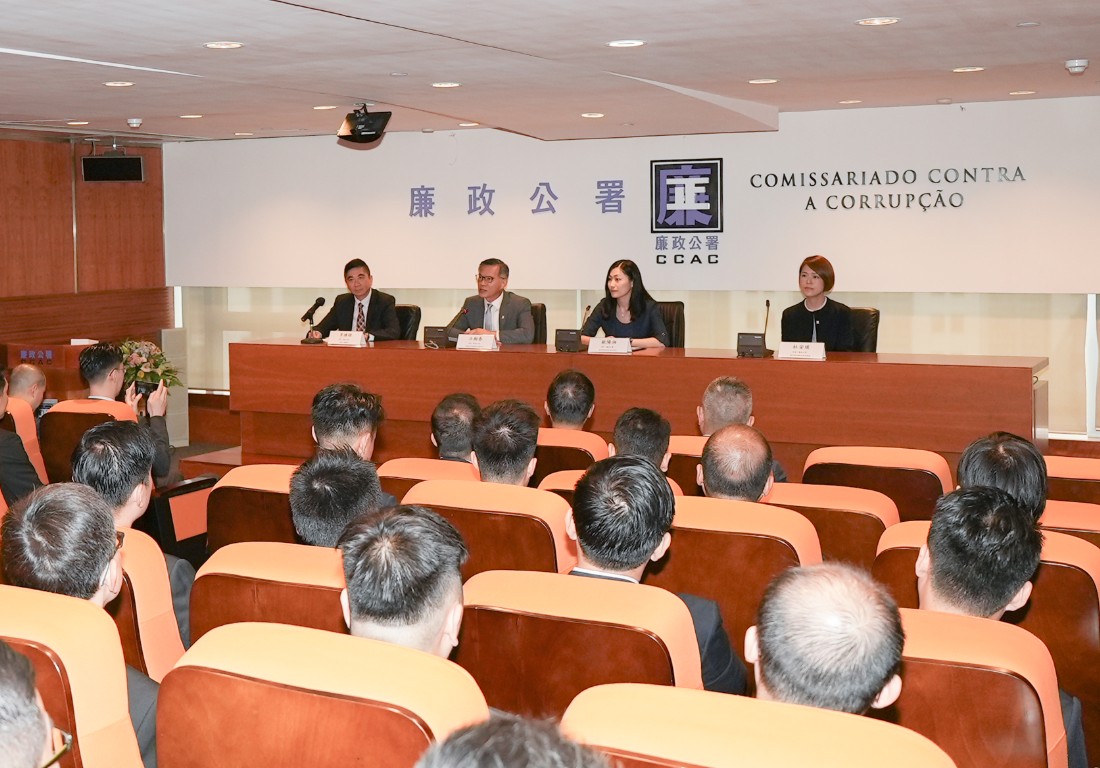 ICAC of Hong Kong sends staff to launch a training programme for CCAC’s personnel
ICAC of Hong Kong sends staff to launch a training programme for CCAC’s personnel
The CCAC has been sparing no effort in fighting corruption. In order to further enhance the law enforcement capacity and skills of its investigators, it has specially invited the Independent Commission Against Corruption (ICAC) of Hong Kong to send staff to Macao to launch a “continuous training programme on anti-corruption work for the CCAC’s investigators”.
The Deputy Commissioner cum Director of the Anti-Corruption Bureau of the CCAC, Ao Ieong Seong and the Deputy Commissioner and Head of Operations of the ICAC, Yau Shu-chun, among others, attended the inauguration ceremony. Ao Ieong Seong showed her gratitude to the ICAC for specially sending its staff to Macao to provide training to the staff of the Anti-Corruption Bureau of the CCAC and share with them their law enforcement experience. She expected that the staff of the CCAC can put their learning to good use in order to enhance the law enforcement capacity, safeguard the justice and righteousness, and support the integrity of Macao.
The programme, which commences today (19th September) for four consecutive days, covers various investigation approaches and techniques including finance and accounting, money laundering, digital forensics and intelligence systems, among others.
Those who attended the inauguration ceremony also included the Head of the Investigation Department 2 of the CCAC, Lei Tong Leong, the Director of the Training and Development of the Operations Department of the ICAC, To On-ki, the Deputy Director of the Training and Development of the Operations Department, Leung Chun-yu, and the Chief Investigator of the Operations Department, Wong Hon-kit, etc.


